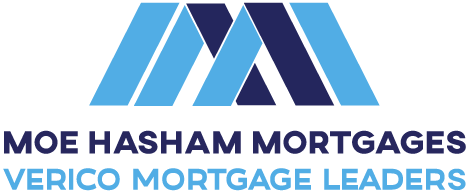Your Mortgage Questions Answered
Buying a home, refinancing, or securing a mortgage can feel overwhelming. To make the process easier, I’ve compiled answers to 30 of the most frequently asked mortgage questions. Whether you’re a first-time buyer, self-employed, or refinancing your home, you’ll find the answers you need right here.
General Mortgage Questions
A mortgage is a loan used to purchase or refinance a home, where the property itself serves as collateral. The borrower repays the loan in monthly installments, including principal and interest.
Lenders assess your credit score, income, debt-to-income ratio, employment history, and down payment to determine eligibility.
- Fixed Rate: Interest stays the same for the loan term, ensuring predictable payments.
- Variable Rate: Interest fluctuates based on market conditions, which may result in lower or higher payments over time.
- 5% minimum for homes under $500,000.
- 10% for the portion of the price between $500,000 – $999,999.
- 20% for homes over $1 million or for investment properties.
A pre-approval confirms how much you can borrow based on your financial status. It locks in a rate for up to 120 daysand strengthens your home-buying offer.
Yes, but only slightly. A mortgage pre-approval requires a hard credit check, which may temporarily lower your score by a few points.
Home Buying Questions
The First-Time Home Buyer Incentive allows eligible buyers to receive a shared-equity mortgage from the government, reducing monthly mortgage payments.
Yes! You may qualify for a bad credit mortgage through private lenders or alternative financing options. A higher down payment may be required.
- Land Transfer Tax
- Legal Fees & Closing Costs
- Home Inspection Fees
- Property Taxes & Home Insurance
Your affordability depends on your income, expenses, credit score, and down payment. Use a mortgage calculator to estimate how much you can afford.
Mortgage Rates & Payment Questions
Mortgage rates are influenced by the Bank of Canada’s interest rates, lender policies, credit score, and the economy.
- Credit Score – Higher scores get lower rates.
- Down Payment – Larger down payments can secure better rates.
- Loan Type & Term – Fixed vs. variable and loan duration impact rates.
Yes! A mortgage broker can negotiate with lenders on your behalf to secure lower rates and better terms.
A missed payment can negatively impact your credit score and may result in late fees or penalties.
Options include:
- Refinancing to get a lower rate.
- Extending your amortization period.
- Making a larger down payment upfront.
Mortgage Refinancing & Renewal Questions
Refinancing involves replacing your existing mortgage with a new one—often to secure a lower rate, consolidate debt, or access home equity.
- To secure a lower interest rate.
- To consolidate high-interest debts.
- To access home equity for investments or renovations.
When your mortgage term ends, you can renew with the same lender or switch to another lender for a better deal.
Yes! You are not obligated to stay with the same lender. Comparing offers can save you thousands over time.
Penalties depend on the mortgage type:
- Fixed-rate mortgage: May have a high penalty (typically the greater of three months’ interest or the interest rate differential).
- Variable-rate mortgage: Usually a lower penalty (three months’ interest).
Home Equity & Private Lending Questions
A HELOC allows you to borrow against the equity in your home, offering a flexible line of credit with lower interest rates than credit cards.
A reverse mortgage is available to homeowners 55+, allowing them to access up to 55% of their home’s value in tax-free cash, without monthly payments.
Private lenders offer mortgage solutions to those who may not qualify with traditional banks, including self-employed borrowers or those with bad credit.
- Self-employed individuals with fluctuating income.
- People with bad credit or high debt.
• Investors looking for short-term mortgage solutions.
Mortgage Process & Legal Questions
Mortgage approval can take a few days to a few weeks, depending on lender processing times and document submission.
- Proof of income (pay stubs, tax returns, or business financials for self-employed borrowers)
- Credit history & report
- Down payment proof
- Property details (if applicable)
Mortgage default insurance is required if your down payment is less than 20%. It protects lenders if the borrower defaults.
Yes! Many lenders allow lump sum payments or extra payments without penalty, depending on your mortgage terms.
The amortization period is the length of time you take to fully repay your mortgage (e.g., 25 years for most Canadian mortgages).
A mortgage broker:
- Shops for the best rates & terms across multiple lenders.
- Handles all paperwork & negotiations.
- Provides expert guidance tailored to your financial situation.
Still Have Mortgage Questions? Let’s Talk!
Have mortgage concerns? Need expert guidance? Contact me today, and I’ll help you navigate your mortgage options with ease.
- moe.mortgageleaders@gmail.com
- Serving Toronto & the Greater Toronto Area
- 416-500-4381

